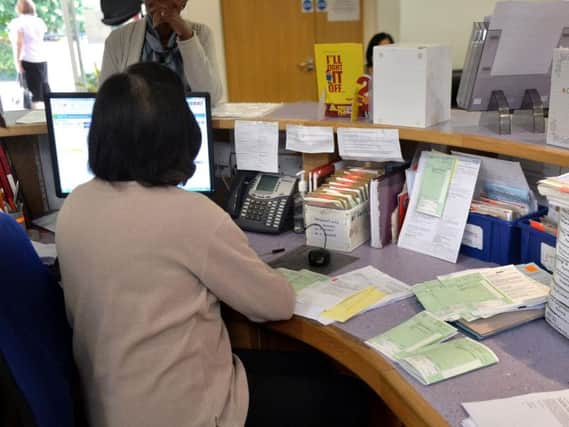GP receptionists should be trained to deal more sensitively with patients


A new study found that both men and women dislike telling receptionists what is wrong ahead of being able to book an appointment with their GP.
It is common practice for receptionists to ask about symptoms when people try to book an appointment.
Advertisement
Hide AdAdvertisement
Hide AdExperts argue this helps identify the most urgent cases and puts people in touch with the right service.
But critics say receptionists - who are often not medically trained - should not be allowed to triage patients.
A 2015 study published in the British Journal Of General Practice, where researchers posed as patients with stroke symptoms when calling GP receptionists, found around a third of calls were not recognised as emergencies.
In the latest study, published in the Journal Of Public Health, analysis of responses from 2,000 people in the UK found 37% of men and 43% of women do not like having to talk to a GP receptionist about their symptoms.
Advertisement
Hide AdAdvertisement
Hide AdOther barriers to seeing a GP include finding it difficult to get an appointment with a particular doctor (42%), or to get an appointment at a convenient time (42%).
A third of people (35%) were put off visiting their GP because they did want to be seen as someone who makes a fuss.
Overall, women were more likely to be put off by these factors than men.
The analysis was taken from the Cancer Awareness Measure - a survey of almost 2,000 people designed to reliably assess awareness of cancer.
Advertisement
Hide AdAdvertisement
Hide AdIt is run by Cancer Research UK via the national opinions and lifestyle survey from the Office for National Statistics (ONS).
It found those from socially deprived backgrounds were more likely than their wealthy counterparts to worry about what the GP may find.
They were more likely to be put off the idea of having tests and talking about symptoms, and were more likely to be put off if they could not see their regular doctor.
Dr Jodie Moffat, lead author and head of early diagnosis at Cancer Research UK, said: "There's still more to learn about the things that may put people off going to their doctor, and how important they are when it comes to actually influencing behaviour.
Advertisement
Hide AdAdvertisement
Hide Ad"But it's clear that a new sign or symptom, or something that has stayed or got worse over time, needs to be checked out by a GP. Don't let anything put you off. "
Dr Richard Vautrey, deputy chairman of the British Medical Association's GP committee, said: "All receptionists receive training to help ensure that when a patient calls they are given the most effective advice about what appointment they may need, but it is always made clear that are under no obligation to disclose information they are not comfortable with."
He said the BMA had successfully lobbied for more funding to be invested in receptionist training. This - and other promised funding for GPs - needed to be "implemented rapidly", he added.